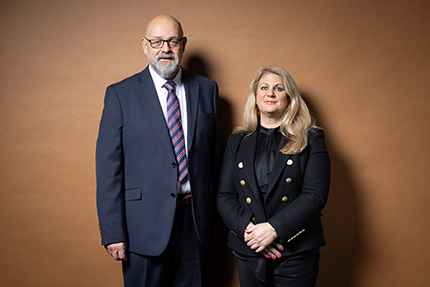Divorce and Finances
Can you help sort out my finances if I get divorced?
Divorce and Finances can be particularly stressful, in this section, we briefly explain Financial Remedy Proceedings and Financial Remedy Orders.
Divorce and Civil partnership dissolution is difficult, especially when deciding how to divide the assets, income, property, pensions and liabilities fairly. Often disagreements arise even with those who have amicably ended the relationship. Here at Vincents, our team have years of experience in sensitively assisting clients seeking to reach an agreement. Should this not be possible, we can advise and guide you through the financial remedy process.
Pre-Proceedings
Can you and your ex resolve matters out of court?
This may involve just simple direct negotiation between you both or with the assistance of your solicitors or a mediator. To do this, you both must provide full and frank financial disclosure to each other.
What should be disclosed?
You should start to gather your financial information as soon as possible. This should include the following:
- A valuation of the matrimonial home and any other property or buildings owned by you, or in which you have an interest, and a recent mortgage statement in respect of each.
- Bank and Building Society statements for the past 12 months for accounts held by you in your own name or jointly with another person.
- Details of all life insurance policies and the surrender values, if any.
- Full details of all other assets and investments.
- If you have an interest in any business, a copy of any document on which you base a valuation of your interest, and business accounts for the last 2 years. DO NOT go to the expense of a valuation, as one may not be necessary.
- An up-to-date valuation of your pension from your pension provider. You need to request the “cash equivalent value” or “CEV”, and it is particularly important that you request this at an early stage as pension providers can sometimes take a long time to produce this information.
- Full details of any liabilities you have. You should retain your credit card statements as you may have to produce these.
- Your last three pay slips and your P60 for the last financial year. You will normally also have to produce copies of your Inland Revenue tax returns.
- A detailed financial history of the relationship, such as asset previously owned prior to the marriage that is still owned and any inheritance received that has not been subsumed into the family pot.
The court document prescribed for such disclosure is known as a Form E and is often used as a vehicle for providing voluntary disclosure to the other side. By giving such disclosure you can consider how to reach a fair outcome.
The court can make the following financial remedy orders:
- A lump sum order.
- Property adjustment order – this is an order in connection with property. For example, a property adjustment order may provide for the sale or transfer of property.
- A periodical payments order (maintenance for a party following the outcome of the proceedings or for the children of the family);
- Maintenance pending suit order (maintenance for a party pending the outcome of the proceedings);
- A pension sharing or attachment order.
- A variation order (an order to vary a previous order).
- An avoidance of disposition order (an order restraining a party from disposing of or dealing with their property);
- A legal services order (an order providing for the payment of legal fees)
What is considered by the court?
The Judge is guided by the factors set down in section 25 of the Matrimonial Act 1973, with the primary consideration being that of dependent children. The Section 25 factors are:
- The income, earning capacity, property and other financial resources which each of the parties to the marriage/ civil partnership has or is likely to have in the foreseeable future, including in the case of earning capacity any increase in that capacity which it would, in the opinion of the court, be reasonable to expect a party to the marriage/ civil partnership to take steps to acquire.
- The financial needs, obligations and responsibilities which each of the parties to the marriage has or is likely to have in the foreseeable future.
- The standard of living enjoyed by the family before the breakdown of the marriage/ civil partnership.
- The age of each party to the marriage and the duration of the marriage/ civil partnership.
- Any physical or mental disability of either of the parties to the marriage/ civil partnership.
- The contributions which each of the parties has made or is likely in the foreseeable future to make to the welfare of the family, including any contribution by looking after the home or caring for the family.
- The conduct of each of the parties, if that conduct is such that it would, in the opinion of the court, be inequitable to disregard it.
- The value to each of the parties to the marriage/ civil partnership of any benefit which, by reason of the dissolution or annulment of the marriage/ civil partnership, that party will lose the chance of acquiring.
A judge has wide discretion in applying those factors to your circumstances, which is just one reason no two cases are the same.
Before an application can be made to the court for a Judge to determine how the marital assets should be divided, you will need to meet with a mediator unless certain exemptions apply, who will sign the form that is used to start court proceedings.
This is known as a Mediation Information and Assessment Meeting (MIAM). The purpose of the meeting is for the mediator to discuss mediation with you.
Mediation may not be suitable for everyone or in every situation. If mediation is not going to progress, the mediator will sign the MIAM certificate which is needed to start proceedings.
The Financial Remedy Court Procedure
The process is started by filing an application with the court together with the court fee.
First Appointment: The Judge will establish if full disclosure has been made, and whether further evidence such as expert report is required. The First Appointment will deal with directions only to move the case forward.
The Financial Dispute Resolution Hearing
A further preliminary court appointment, called a Financial Dispute Resolution hearing (“FDR”), will then usually be listed. Seven days before the FDR, details of any proposals for settlement must be filed at court. You, your spouse and your legal representatives must attend the FDR. The primary purpose of this hearing is to encourage the parties to have discussions and negotiations with the aim of reaching agreement, if possible. The district judge may indicate their views about certain aspects of the case and may make further orders about the progress of the case. If agreement is not reached, a final hearing will be listed, usually several weeks after the FDR and before a different judge.
Final Hearing
You and your spouse will need to attend to give evidence, together with any other witnesses, solicitors and barristers. The applicant (the person who started the financial proceedings by filing Form A) must make an open offer of settlement 14 days before the final hearing. The respondent (the other party) must make an open offer 7 days before the final hearing.
The Judge will make an order appropriate to the all the circumstances of your case, this may not necessarily be what you want and it is likely it will not be what your spouse sought either.
For any more information and advice from our team about Divorce and Finances call us 0n 01772 555 176.
Meet our team of experts
Frequently asked questions
Family Law Client Testimonials
Clear Advice Feels Better
Divorce Client Review
Mr Mark Mosley has a wonderful manner ensuring that I understood all stages of the process. He was always supportive. I wish to take this opportunity to thank him, Mark is without doubt the person I would recommend to anyone going through a Divorce.

Family Law Client Thank you
Thank you so much Val you have helped me through this and I feel more confident for tomorrow whatever the outcome is.

Family Law Client Testimonial
It’s been a long year with all this so I’d like to also say thank you for all you and Martin have helped me and the girls it’s massively appreciated.












